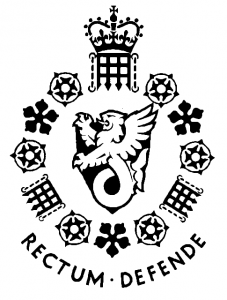A recent interview on BBC World Service radio, on “World Have Your Say”. An interesting debate with some other former intelligence types:
BBC World Service “World Have Your Say” interview from Annie Machon on Vimeo.
A recent interview on BBC World Service radio, on “World Have Your Say”. An interesting debate with some other former intelligence types:
BBC World Service “World Have Your Say” interview from Annie Machon on Vimeo.
Just a short post to announce the new Edward Snowden website. Away from all the spin and media hysteria, here are the basic facts about the information disclosed and the issues at stake.

And here’s another aide memoire of the disclosures so far. The impact of these disclosures is global. Edward Snowden is simply the most significant whistleblower in modern history.
Here is a quick interview I did about the EU’s new data protection measures, laws that will have to be implemented in the wake of Edward Snowden’s disclosures about endemic NSA surveillance:
This is an excellent example of how whistleblowers continue to make a positive contribution to society.
First published by RT Op-Edge.
Andrew Parker, the Director General of the UK’s domestic security Service (MI5) yesterday made both his first public speech and a superficially robust defence of the work of the intelligence agencies. Reading from the outside, it sounds all patriotic and noble.
 And who is to say that Parker does not believe this after 30 years on the inside and the MI5 groupthink mentality being what it is? Let’s give him the benefit of the doubt. However, I have two problems with his speech, on both a micro and a macro scale.
And who is to say that Parker does not believe this after 30 years on the inside and the MI5 groupthink mentality being what it is? Let’s give him the benefit of the doubt. However, I have two problems with his speech, on both a micro and a macro scale.
Let’s start with the micro — ie the devil in the detail — what is said and, crucially, what is left unsaid. First up: oversight, which the spook apologists have dwelt on at great length over the last few months.
I wrote about this last week, but here’s some of that devilish detail. Parker correctly explains what the mechanisms are for oversight within MI5: the Home Office warrants for otherwise illegal activities such as bugging; the oversight commissioners; the Complaints Tribunal; the Intelligence and Security Committee in Parliament. This all sounds pretty reasonable for a democracy, right?
Of course, what he neglects to mention is how these systems can be gamed by the spies.
The application for warrants is a tick-box exercise where basic legal requirements can be by-passed, the authorising minister only ever sees a summary of a summary.… ad infinitum.… for signature, and never declines a request in case something literally blows up further down the line.
Sure, there are independent commissioners who oversee MI5 and its surveillance work every year and write a report. But as I have written before, they are given the royal treatment during their annual visit to Thames House, and officers with concerns about the abuse of the warrantry system are barred from meeting them. Plus, even these anodyne reports can highlight an alarming number of “administrative errors” made by the spies, no doubt entirely without malice.
The complaints tribunal — the body to which we can make a complaint if we feel we have been unnecessarily spied on, has always found in favour of the spies.
And finally, the pièce de résistance, so to speak: the Intelligence and Security Committee in parliament. How many times do I have to write this? Top cops and Parker’s spy predecessors have admitted to lying successfully to the ISC for many years. This is not meaningful oversight, nor is the fact that the evidence of earlier major intelligence whistleblowers was ignored by the ISC, except for the part where they might be under investigation by MI5 themselves.…
Of course, the current Chair of the ISC, Sir Malcom Rifkind, has entered the lists this summer to say that the ISC has just acquired new powers and can now go into the spies’ lairs, demand to see papers, and oversee operational activities. This is indeed good, if belated, news, but from a man who has already cleared GCHQ’s endemic data-mining as lawful, one has to wonder how thorough he will be.
While the committee remains chosen by the PM, answerable only to the PM, who can also vet the findings, this committee is irredeemably undemocratic. It will remain full of credulous yes-men only too happy to support the status quo.
Secondly, what are the threats that Parker talks about? He has worked for MI5 for 30 years and will therefore remember not only the Cold War era, where Soviet spies were hunted down, but also the very real and pervasive threat of IRA bombs regularly exploding on UK streets. At the same time hundreds of thousands of politically active UK citizens were aggressively investigated. A (cold) war and the threat of terrorism allowed the spies a drag-net of surveillance even then.
 How much worse now, in this hyper-connected, data-mining era? One chilling phrase that leapt out at me from Parker’s speech was the need to investigate “terrorists and others threatening national security”. National security has never been legally defined for the purposes of UK law, and we see the goal posts move again and again. In the 1980s, when Parker joined MI5, it was the “reds under the bed”, the so-called subversives. Now it can be the Occupy group encamped in the City of London or environmental activists waving placards.
How much worse now, in this hyper-connected, data-mining era? One chilling phrase that leapt out at me from Parker’s speech was the need to investigate “terrorists and others threatening national security”. National security has never been legally defined for the purposes of UK law, and we see the goal posts move again and again. In the 1980s, when Parker joined MI5, it was the “reds under the bed”, the so-called subversives. Now it can be the Occupy group encamped in the City of London or environmental activists waving placards.
So now for my macro concerns, which are about wider concepts. Parker used his first public speech to defend not only the work of his own organisation, but also to attack the whistleblowing efforts of Edward Snowden and the coverage in The Guardian newspaper. He attempts to seamlessly elide the work and the oversight models of MI5 and GCHQ. And who is falling for this? Well, much of the UK media apparently.
This muddies the waters. The concerns about Snowden’s disclosures are global — the TEMPORA project affects not only the citizens of the UK but people across Europe and beyond. For Rifkind or the Foreign Secretary to complacently say that GCHQ is overseen by them and everything is hunkey-dorey is just not good enough, even for the hapless citizens of the UK. How much more so for those unrepresented people across the world?
The IOCA (1985) and later and much-abused RIPA (2000) laws were written before the UK government could have conceived of the sheer scale of the internet. They are way out of date — 20th century rolling omnibus warrants hoovering up every scrap of data and being stored for unknown times in case you might commit a (thought?) crime in the future. This is nothing like meaningful oversight.
Unlike the UK, even the USA is currently having congressional hearings and media debates about the limits of the electronic surveillance programme. Considering America’s muscular response after 9/11, with illegal invasions, drone strikes, CIA kill lists and extraordinary kidnappings (to this day), that casts the UK spy complacency in a particularly unflattering light.
Plus if 58,000 GCHQ documents have really been copied by a young NSA contractor, why are Parker and Rifkind not asking difficult questions of the American administration, rather than continuing to justify the antiquated British oversight system?
Finally, Parker is showing his age as well as his profession when he talks about the interwebs and all the implications. As I said during my statement to the LIBE committee in the European Parliament:
First published on RT Op-Edge. Also on Information Clearing House and The Huffington Post.
The disparity in response to Edward Snowden’s disclosures within the USA and the UK is astonishing. In the face of righteous public wrath, the US administration is contorting itself to ensure that it does not lose its treasured data-mining capabilities: congressional hearings are held, the media is on the warpath, and senior securocrats are being forced to admit that they have lied about the efficacy of endemic surveillance in preventing terrorism.
Just this week General Alexander, the head of the NSA with a long track record of misleading lying to government, was forced to admit that the endemic surveillance programmes have only helped to foil a couple of terrorist plots. This is a big difference from the previous number of 54 that he was touting around.
Cue calls for the surveillance to be reined in, at least against Americans. In future such surveillance should be restricted to targeted individuals who are being actively investigated. Which is all well and good, but would still leave the rest of the global population living their lives under the baleful stare of the US panopticon. And if the capability continues to exist to watch the rest of the world, how can Americans be sure that the NSA et al won’t stealthily go back to watching them once the scandal has died down — or just ask their best buddies in GCHQ to do their dirty work for them?
I’m sure that the UK’s GCHQ will be happy to step into the breach. It is already partially funded by the NSA, to the tune of $100 million over the last few years; it has a long history of circumventing US constitutional rights to spy on US citizens (as foreigners), and then simply passing on this information to the grateful NSA, as we know from the old Echelon scandal; and it has far more legal leeway under British oversight laws. In fact, this is positively seen to be a selling point to the Americans from what we have seen in the Snowden disclosures.
GCHQ is absolutely correct in this assessment — the three primary UK intelligence agencies are the least accountable and most legally protected in any western democracy. Not only are they exempt from any real and meaningful oversight, they are also protected against disclosure by the draconian 1989 Official Secrets Act, designed specifically to criminalise whistleblowers, as well as having a raft of legislation to suppress media reporting should such disclosures emerge.
This might, indeed, be the reason that the UK media is not covering the Snowden disclosures more extensively — a self-censoring “D” Notice has been issued against the media, and The Guardian had its UK servers smashed up by the secret police. 1930s Germany, anyone?
Defenders of the status quo have already been out in force. Foreign Secretary William Hague, who is notionally responsible for GCHQ, said cosily that everything was legal and proportionate, and Sir Malcolm Rifkind, the current chair of the Intelligence and Security Committee in parliament last week staunchly declared that the ISC had investigated GCHQ and found that its data mining was all legal as it had ministerial approval.
Well that’s all OK then. Go back to sleep, citizens of the UK.
What Hague and Rifkind neglected to say was that the ministerial warrantry system was designed to target individual suspects, not whole populations. Plus, as the Foreign secretary in charge of MI6 at the time of the illegal assassination plot against Gaddafi in 1996, Rifkind of all people should know that the spies are “economical with the truth”.
In addition, as I’ve written before, many former top spies and police have admitted that they misled lied to the ISC. Sure, Rifkind has managed to acquire some new powers of oversight for the ISC, but they are still too little and 20 years too late.
This mirrors what has been going on in the US over the last few years, with senior intelligence official after senior official being caught out lying to congressional committees. While in the UK statements to the ISC have to date not been made under oath, statements made to the US Congress are — so why on earth are apparent perjurers like Clapper and Alexander even still in a job, let alone not being prosecuted?
It appears that the US is learning well from its former colonial master about all things official secrecy, up to and including illegal operations that can be hushed up with the nebulous and legally undefined concept of “national security”, the use of fake intelligence to take us to war, and the persecution of whistleblowers.
Except the US has inevitably super-sized the war on whistleblowers. While in the UK we started out with the 1911 Official Secrets Act, under which traitors could be imprisoned for 14 years, in 1989 the law was amended to include whistleblowers — for which the penalty is 2 years on each charge.
The US, however, only has its hoary old Espionage Act dating back to 1917 and designed to prosecute traitors. With no updates and amendments, this is the act that is now rolled out to threaten modern whistleblowers working in the digital age. And the provisions can go as far as the death penalty.
President Obama and the US intelligence establishment are using this law to wage a war on whistleblowers. During his presidency he has tried to prosecute seven whistleblowers under this Espionage Act — more than all the previous presidents combined — and yet when real spies are caught, as in the case of the Russian Spy Ring in 2010, Obama was happy to cut a deal and send them home.
An even more stark example of double standards has emerged this August, when a leak apparently jeopardised an ongoing operation investigating a planned Al Qaeda attack against a US embassy in the Middle East. This leak has apparently caused immediate and quantifiable damage to the capabilities of the NSA in monitoring terrorism, and yet nobody has been held to account.
But, hey, why bother with a difficult investigation into leaking when you can go after the low-hanging fruit — otherwise known as principled whistleblowers who “out” themselves for the public good?
This to me indicates what the US intelligence infrastructure deems to be the real current issue — “the insider threat” who might reveal crucial information about state crimes to the world’s population.
And yet the US representatives still trot out the tired old lines about terrorism. Senator Lindsey Graham stated this week that the current level of endemic surveillance would have prevented 9/11. Well, no, as previous intelligence personnel have pointed out. Coleen Rowley — Time Person of the Year 2002 — is famous for highlighting that the US intelligence agencies had prior warning, they just didn’t join the dots. How much worse now would this process be with such a tsunami of data-mined intelligence?
In summary, it’s good to see at least a semblance of democratic oversight being played out in the USA, post-Snowden. It is a shame that such a democratic debate is not being held in the UK, which is now the key enabler of the USA’s chronic addiction to electronic surveillance.
However, I fear it is inevitably too little too late. As we have seen through history, the only protection against a slide towards totalitarianism is a free media that allows a free transfer of ideas between people without the need to self-censor. The global US military-security complex is embedded into the DNA of the internet. We cannot rely on the USA to voluntarily hand back the powers it has grabbed, we can only work around them as Brazil has suggested it will do, and as the EU is contemplating.
Other than that, responsibility for our privacy rests in our own hands.
This week I was invited to give a statement to the LIBE Committee at the European Parliament about whistleblowing and the NSA mass surveillance scandal.
I was in good company: ex-NSA Tom Drake, ex-Department of Justice Jesselyn Radack, and ex-NSA Kirk Wiebe. As well as describing the problems we had faced as intelligence whistleblowers, we also suggested some possible solutions.
We were well received, even to the extent of an ovation from the normally reticent MEPs. We also all did various interviews for TV during the day, but this is the only one I have tracked down so far.
Here is the video:
EU Parliament LIBE Inquiry on Electronic Mass Surveillance of EU Citizens from Annie Machon on Vimeo.
Below is some background material from my submission to the European Parliament’s LIBE Committee on the implications of the NSA scandal.
Here is a video link to the hearing.
LIBE Committee Inquiry on Electronic Mass Surveillance of EU Citizens, European Parliament, 30th September 2013
Biography:
Annie Machon was an intelligence officer for the UK’s MI5 in the 1990s, before leaving to help blow the whistle on the crimes and incompetence of the British spy agencies. As a result she and her former partner had to go on the run around Europe, live in exile in France, face arrest and imprisonment, and watch as friends, family and journalists were arrested.
She is now a writer, media commentator, political campaigner, and international public speaker on a variety of related issues: the war on terrorism, the war on drugs, the war on whistleblowers, and the war on the internet. In 2012 she started as a Director of LEAP in Europe (www.leap.cc).
Annie has an MA (Hons) Classics from Cambridge University.
Background material:
Recommendations:
 I had a fabulous time doing an interview on behalf of LEAP for the new anti-prohibition film, The Culture High.
I had a fabulous time doing an interview on behalf of LEAP for the new anti-prohibition film, The Culture High.
Made by Adam Scorgie, who directed the cult film, The Union, his new work promises to be the film on the subject of cannabis prohibition. Thanks to the team for a wide-ranging, lively and stimulating interview.
If you want to support their work, click here. And the film will be released next summer.
Last week I was invited to discuss the control of the media by the spies and the government apparatus by the Centre for Media Studies at the Stockholm School of Economics in Riga. Many thanks to Hans, Anders and the team for inviting me, and to Inese Voika , the Chair of Transparency International in Latvia, for setting the scene so well.
I focused particularly on how journalists can work with and protect whistleblowers:
Whistleblowing is the New Rock and Roll from Annie Machon on Vimeo.
The International Day of Privacy was celebrated globally on 31 August, with the cases of Chelsea Manning and Edward Snowden bringing extra energy and resonance to the subject.
I was invited take part in a demonstration in Berlin, culminating with a talk at the hugely symbolic Brandenburg Gate. Here’s the talk:
 Home and recovered from the rigours of the amazing geekfest, OHM 2013.
Home and recovered from the rigours of the amazing geekfest, OHM 2013.
This was a 5‑day festival in the Netherlands where 3000 geeks, activists and whistleblowers gathered to have fun and also try to put the world to rights. And this crowd, out of all activist groups, has a fighting chance. The geeks are tooled-up, tech-savvy, and increasingly politicised after all the recent assaults on the internet and wider freedoms.
These include all the anti-piracy measures (interestingly, Russia has just joined the lost war that is the anti-piracy legislation, and the Russian pirates are going to form a Pirate Church, as this will give them special protections and rights under the law). It also includes all the invidious international agreements that the US and its Euro-vassals are trying to force down the throats of reluctant populations: ACTA, PIPA, SOPA, TAFTA.… you name it, there’s a whole new anti-freedom alphabet soup out there in addition to the spook acronyms.
Not to mention all the illegal US take-downs of legitimate business websites, such as Megaupload, and the panoptic surveillance powers of the NSA and its global intelligence buddies, long suspected by many and now proven by the disclosures of the courageous Edward Snowden.
So it was lovely to see at OHM an increasing politicisation. This was partly because of all the above recent horrors, but also because the OHM organisers had pulled together a strong political and whistleblowing speaker track. The attack against digital civil liberties is inextricably linked to and reflective of the full-frontal attack on our historic real-world freedoms: endemic surveillance, kidnapping, torture, CIA kill lists, illegal wars, drone strikes, secret courts, and many other encroaching horrors that I have written about ad nauseam. And this is just what we know about.
 In my view our Western democracies have been at least fatally holed, if they have not yet foundered. Which, of course, means that our violent, interventionist attempts to bring “democracy” to the developing world are derided as hypocritical at best, and violently resisted at worst.
In my view our Western democracies have been at least fatally holed, if they have not yet foundered. Which, of course, means that our violent, interventionist attempts to bring “democracy” to the developing world are derided as hypocritical at best, and violently resisted at worst.
The new front-line of this struggle is “cyber” warfare — be it the illegal aggressive attacks of such US/Israeli viruses against Iran such as Stuxnet (that is now roaming free in the wild and mutating), or the slower wars of attrition against “pirates”, hackers, Wikileaks, and the growing war on whistleblowers such as Bradley Manning and Edward Snowden.
Well, geeks are the new resistance and they have a fighting chance in my view. And this is why I think that they are our best hope.
 This was my experience of OHM. Three thousand of the best and the brightest from around the world gathered together not just to have fun playing with bleeding-edge tech, hacking and building toys, and creating slightly surreal, if beloved, hover-pets (see right), but also who turned out in their thousands to listen to and absorb the experiences of a number of international intelligence whistleblowers. In the wake of the Edward Snowden case, this is a hot topic in these circles and there was a huge impetus to help.
This was my experience of OHM. Three thousand of the best and the brightest from around the world gathered together not just to have fun playing with bleeding-edge tech, hacking and building toys, and creating slightly surreal, if beloved, hover-pets (see right), but also who turned out in their thousands to listen to and absorb the experiences of a number of international intelligence whistleblowers. In the wake of the Edward Snowden case, this is a hot topic in these circles and there was a huge impetus to help.
We whistleblowers had a fabulous time too. One is a “natural-born geek” — Tom Drake, formerly of the NSA, who was threatened with 35 years in prison because he dared to disclose problems with his organisation. His lawyer, government lawyer-turned-whistleblower Jesselyn Radack, also spoke of her experiences. Coleen Rowley, the FBI whistleblower who exposed the intelligence failure in the US in the run-up to 9/11 and was voted Time Person of the Year in 2002 also gave a fantastic talk called “Secrecy Kills”, and former CIA analyst and presidential “briefer”, Ray McGovern, gave the opening keynote speech, focusing on the need to speak out and preserve our rights. I finished the quintet of whistleblowers and provided the Euro-perspective.
And of course the patron saint of whistleblowers also did one of the key talks — but he had to be beamed in. Julian Assange, who was free to attend HAR, the last such event in the Netherlands four years ago, was unavoidably detained in his embassy refuge in the UK.
The whistleblowers all came together for one of the big sessions of OHM — the “Great Spook Panel”, moderated by the indomitable Nick Farr. The panel was basically a call to arms for the next generation. This addressed the need to stand up to protect our rights against all the egregious erosions that have occurred since 9/11. The response was hugely enthusiastic. I hope this goes global, and the wider community follows up.
It certainly did in one way. Ray McGovern announced the establishment of the Edward Snowden Defence Fund at the end of the panel discussion, and the donations poured in for the rest of the event.
So a very successful festival. How do I make that assessment? Well, on top of all the fun, variety of talks and networking, the Dutch intelligence service, the AIVD (an unfortunate-sounding name to most English speakers), requested a platform at the event after the Great Spook Panel was announced in the programme.
Such an active and open response shows a degree of push-back against a perceived “threat”. No doubt the organisation wanted to inject the establishment anti-venom before the truth-tellers had their say. Anyway, on the grounds that most whistleblowers are generally denied a mainstream media platform and/or are smeared, the AIVD was prohibited the stage.
Of course, the AIVD would have been very welcome to buy a ticket like normal humans or pay the corporate rate to attend to show support for the community — its officers might have learned something.…
From the middle of a Dutch field at the OHM 2013 festival, I managed to do this interview for RT about GCHQ taking large sums of money from its US equivalent, the NSA:
UK spy agency GCHQ prostitues itself to NSA in corrupt relationship (HD) from Annie Machon on Vimeo.
Today I am limbering up to attend the Dutch geek festival, Observe Hack Make (OHM 2013). A lot of talks from whistleblowers, scientists, geeks, futurists and bleeding edge tech people. The visionaries?
You decide — all talks will be live streamed and available afterwards. Enjoy!
Published on Consortium News, RT Op-Edge, and The Real News Network.
In a sensational article in a UK newspaper last weekend, the former head of the UK’s foreign intelligence gathering agency, MI6, appears to have broken the code of omertà around the fraudulent intelligence case used as the pretext for the Iraq war in 2003.
 Sir Richard Dearlove, former head of MI6 and current Master of Pembroke College, Cambridge, contacted the UK’s Mail on Sunday newspaper to state that he had written his version of the (ab)use of intelligence in the run-up to the US/UK invasion of Iraq. With the long-awaited and much-delayed official Chilcot Enquiry into the case for war about to be published, Dearlove is obviously aware that he might be blamed for the “sexing up” of the intelligence, and that Teflon Tony Blair might once again shuffle off all responsibility.
Sir Richard Dearlove, former head of MI6 and current Master of Pembroke College, Cambridge, contacted the UK’s Mail on Sunday newspaper to state that he had written his version of the (ab)use of intelligence in the run-up to the US/UK invasion of Iraq. With the long-awaited and much-delayed official Chilcot Enquiry into the case for war about to be published, Dearlove is obviously aware that he might be blamed for the “sexing up” of the intelligence, and that Teflon Tony Blair might once again shuffle off all responsibility.
You’ll no doubt have some vague recollection that, in the run-up to the 2003 Iraq War, the British government produced a couple of reports “making a case for war”, as Major General Michael Laurie said in his evidence to the enquiry in 2011: “We knew at the time that the purpose of the [September] dossier was precisely to make a case for war, rather than setting out the available intelligence, and that to make the best out of sparse and inconclusive intelligence the wording was developed with care.”
The first such report, the September Dossier (2002), is the one most remembered, as this did indeed “sex up” the case for war as the deceased Iraqi weapons inspector Dr David Kelly exposed. It also included the fraudulent intelligence about Saddam Hussein trying to acquire uranium from Niger. It was this latter claim that Colin Powell used to such great effect at the UN Security Council.
Also, just six weeks before the attack on Iraq, the “Dodgy” Dossier, based largely on a 12-year old PhD thesis culled from the Internet, but containing nuggets of raw MI6 intelligence — was presented by spy and politician alike as ominous premonitory intelligence.
Most memorably in the UK, it led to the bogus “Brits 45 minutes from Doom” front-page headline in Rupert Murdoch’s The Sun newspaper, no less, on the eve of the crucial war vote in Parliament.
Interestingly from a British legal position, it appears that Tony Blair and his spin doctor Alastair Campbell released this report without the prior written permission of the head of MI6, which means that they would appear to be in breach of the UK’s draconian secrecy law, the Official Secrets Act (1989).
Thus was made the dodgy case for war. All lies — millions of deaths and many more maimed, wounded, and displaced, yet no one held to account.
Subsequently, there was also the notorious leaked Downing Street Memo, where Sir Richard Dearlove was minuted as saying that the intelligence and facts were being fitted around the [predetermined war] policy.
On July 23, 2002 at a meeting at 10 Downing Street, Dearlove briefed Tony Blair and other senior officials on his talks with his American counterpart, CIA Director George Tenet, in Washington three days before.
In the draft minutes of that briefing, which were leaked to the London Times and published on May 1, 2005, Dearlove explains that George Bush had decided to attack Iraq and the war was to be “justified by the conjunction of terrorism and weapons of mass destruction.” While then-Foreign Secretary Jack Straw points out that the case was “thin,” Dearlove explains matter-of-factly, “the intelligence and facts are being fixed around the policy.”
 There is no sign in the minutes that anyone hiccuped — much less demurred — at ”making a case for war” and furthering Blair’s determination to join Bush in launching the kind of “war of aggression” outlawed by the post-world war Nuremberg Tribunal and the UN treaty.
There is no sign in the minutes that anyone hiccuped — much less demurred — at ”making a case for war” and furthering Blair’s determination to join Bush in launching the kind of “war of aggression” outlawed by the post-world war Nuremberg Tribunal and the UN treaty.
The acquiescence of the chief spies helped their political masters mainline into the body politic unassessed, raw intelligence and forged documents, with disastrous consequences for the people of Iraq and the world.
Yet Dearlove long remained unrepentant. Even as recently as 2011, post-retirement and bloated with honours, he continued to deny culpability. When questioned about the Downing Street Memo during an address to the prestigious Cambridge University Union Society by the fearless and fearsomely bright student, Silkie Carlo, Dearlove tried grandiloquently to brush her aside.
But were the remarks in the Memo really “taken out of context” as Dearlove tried to assert? No – the text of the Memo was clear and explicit.
So Dearlove could potentially have saved millions of lives across the Middle East if he had gone public then, rather than now as he is threatening, with his considered professional opinion about the intelligence facts being fitted around a preconceived war policy.
Would it not be lovely if these retired servants of the crown, replete with respect, status and honours, could actually take a stand while they are in a position to influence world events?
Doing so now, purely to preserve his reputation rather than to preserve lives, is even more “ethically flexible” than you would normally expect of an average MI6 intelligence officer. Perhaps that is why he floated to the top of the organisation.
Dearlove is right to be worried about how both Chilcot and history will judge him. These intelligence failures and lies have been picked over and speculated about for years. They are an open secret.
But holding the gun of disclosure to the UK government’s head smacks of desperation. He is quoted as saying that he has no plans to breach the Official Secrets Act by publishing his memoirs. But by publishing an account of the run-up to the Iraq war, he would be still guilty of a breach of the OSA. It has been established under UK law that any unauthorised disclosure crosses the “clear bright line” of the law. And Dearlove seems well aware of this – his original plan was for his account to be made available after his death.
 I can see why he would plan that – firstly he would not risk prosecution under the draconian terms of the OSA, but his account would, in his view, set the record straight and protect his reputation for posterity. A posthumous win-win.
I can see why he would plan that – firstly he would not risk prosecution under the draconian terms of the OSA, but his account would, in his view, set the record straight and protect his reputation for posterity. A posthumous win-win.
The official motto of the UK spies is “Regnum Defende” — defence of the realm. Serving intelligence officers mordantly alter this to “Rectum Defende” — politely translated as watch your back.
Dearlove seems to be living up to the motto. He must be one very frightened old man to be contemplating such premature publication.
With credit and thanks to former CIA analyst, current truth-teller and general pain in the “regnum” to the intelligence establishment, Ray McGovern, and also Sander Venema for his elegantly classical reworking of the final image.
